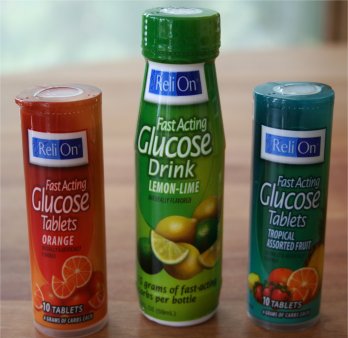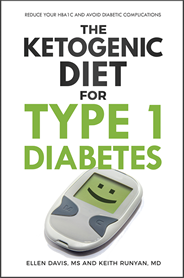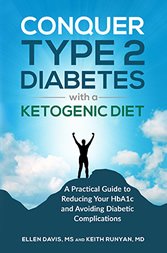Gluconeogenesis
Gluconeogenesis (GNG) is a metabolic process of making glucose, a necessary body fuel, from non-carbohydrate sources such as protein (amino acids), lactate from muscle cell energy metabolism and the glycerol component of fatty acids.
This process is important in maintaining blood glucose levels. Glucose levels must be maintained within a narrow range for good health. If blood sugar is too high, it results in tissue and organ damage. If it is too low, cellular respiration and energy production can suffer, especially if the body is "carbohydrate-adapted," meaning the body is using glucose as it's primary fuel. Without gluconeogenesis, you can't live, as your body must have a constant and steady level of blood glucose to keep the brain and red blood cells alive.
Therefore, the ability of the liver and kidneys to “make new sugar” and regulate blood sugar levels is critical, as it helps the body maintain steady blood sugar levels when foods containing carbohydrates are unavailable or levels of stored sugars (glycogen reserves) within the body are low. GNG is especially important when following a ketogenic diet.
One of the criticisms of a ketogenic diet is that it depletes glycogen which some say negatively affects athletic performance. The liver holds about one-third of the stores of glycogen and uses this reserve to make glucose and release it into the bloodstream when needed, and it does go through some minor depletion at the beginning of a ketogenic diet. But muscle glycogen is held in reserve for muscle use only. Dr. Jeff Volek's research at Ohio State University has shown that once endurance athletes get adapted to a ketogenic diet, they utilize and replete muscle glycogen stores in the same manner as carb-adapted athletes, with no difference in performance.
Glucose and Ignorance

The biochemical details of gluconeogenesis are fascinating to me, and seem to point to the fact that ketogenesis is our true default state of health.
If a person stops eating, or decides to follow a low carb ketogenic diet, carbohydrate intake is reduced. Meals no longer provide carbohydrate to replenish glycogen, and blood sugar levels start to fall. This causes some metabolic changes. As blood sugar levels fall, hormones signal the liver to dismantle stored glycogen, create glucose and release it into the bloodstream.
After about 30 hours with no food or no incoming carbohydrate, a great deal of this stored glycogen is broken down, and the body must then begin making glucose by breaking down stored fatty acids or amino acids from the various protein sources in your body, including your muscles.
Some dietitians and trainers insist that this process is the reason that carbohydrates are "essential foods". They reason that people need to eat carbohydrates at every meal because otherwise, the liver will burn up muscle tissue trying to make enough glucose for the brain each day.
But this is not true when a person is adapted to a low-carb diet over time. Once a person reaches a state of nutritional ketosis, glucose needs for the brain are reduced, as the body can instead use ketones and fatty acids as primary fuels. As glucose needs drop, the liver can make what it needs from the protein and fat eaten.
In other words, if one eats enough protein each day to provide for body maintenance, it will provide enough amino acids for gluconeogenesis, and muscle mass will stay intact. This has been confirmed in many studies. In addition, the muscles will burn fatty acids as a fuel, and this is what everyone wants - to take fat out of storage in the fat cells, and burn it for fuel. This is exactly what happens when you limit your carbohydrate intake.
Everyone experiences the process of gluconeogenesis constantly throughout the day, and especially at night while sleeping. Over the 6-9 hours that one sleeps (without food), the body is busily making new sugar to maintain its narrow blood sugar range. For some people, this nightly GNG process is so robust that morning blood sugar levels are higher than they were when the person went to sleep. This higher than normal morning blood sugar is called the Dawn Phenomenon, and is especially important to understand for Type 1 and insulin dependent Type 2 diabetics.
The bottom line is that there is no health requirement for dietary carbohydrate, because once a person is keto-adapted and brain cells begin to use ketones as an alterative fuel, glucose needs for the brain fall dramatically. The body can make all the glucose it needs from the protein that is eaten, or from the glycerol released when fatty acids are broken down.
It's only when a person consistently eats large amounts of carbohydrate that this cycle of eat carbohydrate-replenish glycogen is useful. This is because the body can't store enough glycogen to offset even one-half day of activity, and high carb intake keeps the body from being able to access stored fat. Hence, meals have to provide sugar to keep liver glycogen topped off and blood sugar levels in range.
Doesn't it seem illogical in an evolutionary framework for the body to rely on a small amount of stored glycogen (about 1600 calories worth) and constant sugar intake for all energy needs, when it could instead develop a metabolism that has access to the more than 100,000 calories in stored fat? Makes sense to me that being a fat-burner definitely provides a metabolic advantage.
In fact, most metabolic syndrome health issues such as high blood pressure, high blood sugar, cholesterol imbalances, and high triglycerides are improved by reducing the amount of carbohydrates consumed, and becoming less dependent on sugar as a fuel.
Gluconeogenesis and Cortisol
One of the more recent myths surrounding ketogenic diets is that they are stressful to the body, because the internal process of having to make glucose from protein and glycerol causes a release of cortisol, the so called "stress" hormone.
This misconception arise from the incorrect belief that the process of GNG ALWAYS requires the secretion of cortisol.
There's a great discussion and breakdown of this myth here. The authors cite several references which report that cortisol is not released in the GNG process until blood sugar drops so low as to cause a hypoglycemic reaction.
And Peter over at the Hyperlipid blog mentions a study here that reports that ketogenic diets improve cortisol metabolism. He writes "Translation: LC eating is what is KEY to IMPROVING glucocorticoid metabolism."
All of my books are available in electronic PDF, and now in paperback on Amazon!
 |
 |
 |
|
Buy paperbook on Buy paperback on Amazon Buy the e-Book via Paypal |
Buy paperback on Buy paperback on Amazon Buy the e-Book via Paypal |
Buy paperback on Buy paperback on Amazon Buy the e-Book via PayPal |
Done with Gluconeogenesis, back to Ketosis
Back to Dawn Phenomenon
Back to Diabetes Treatment